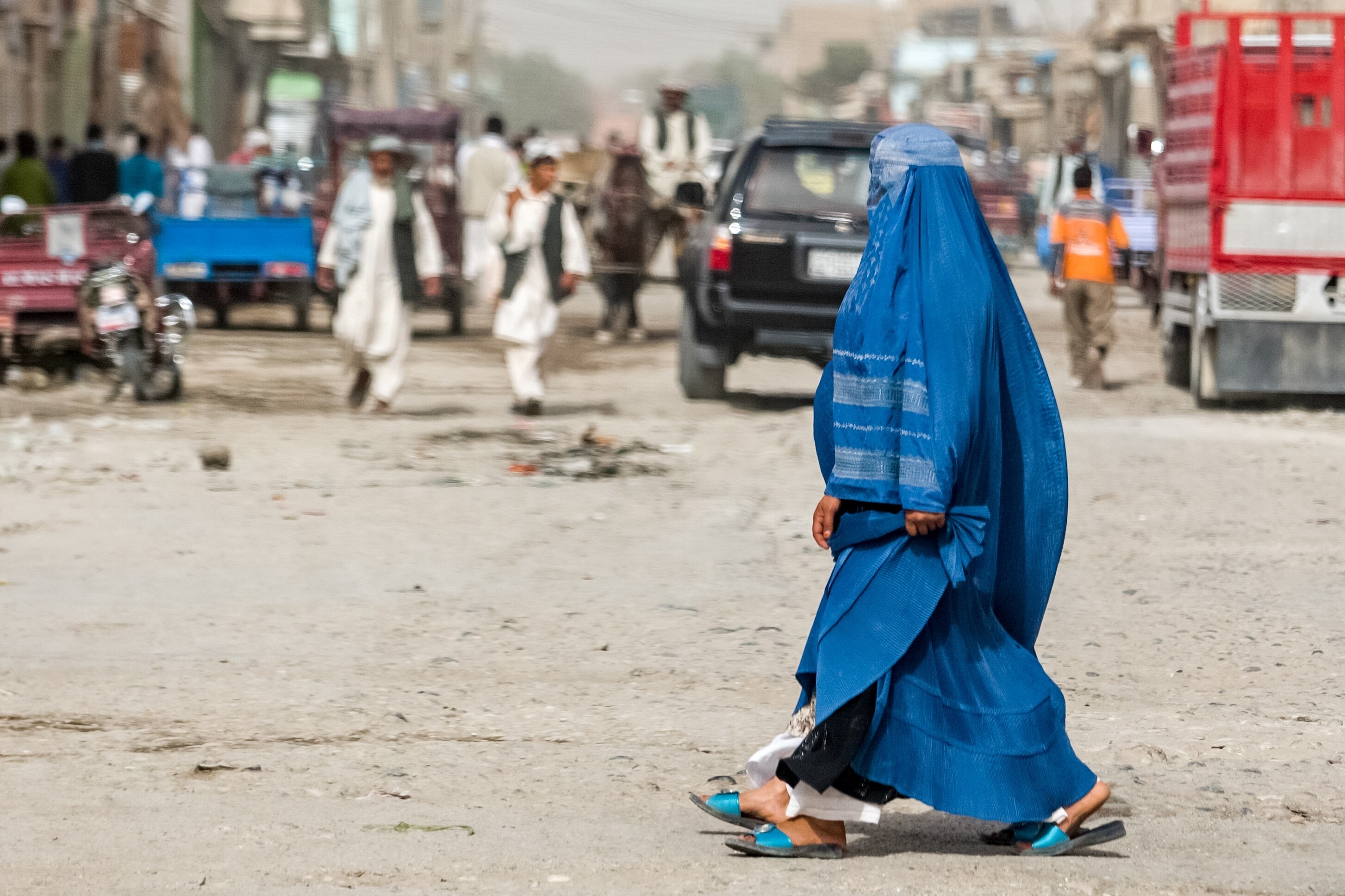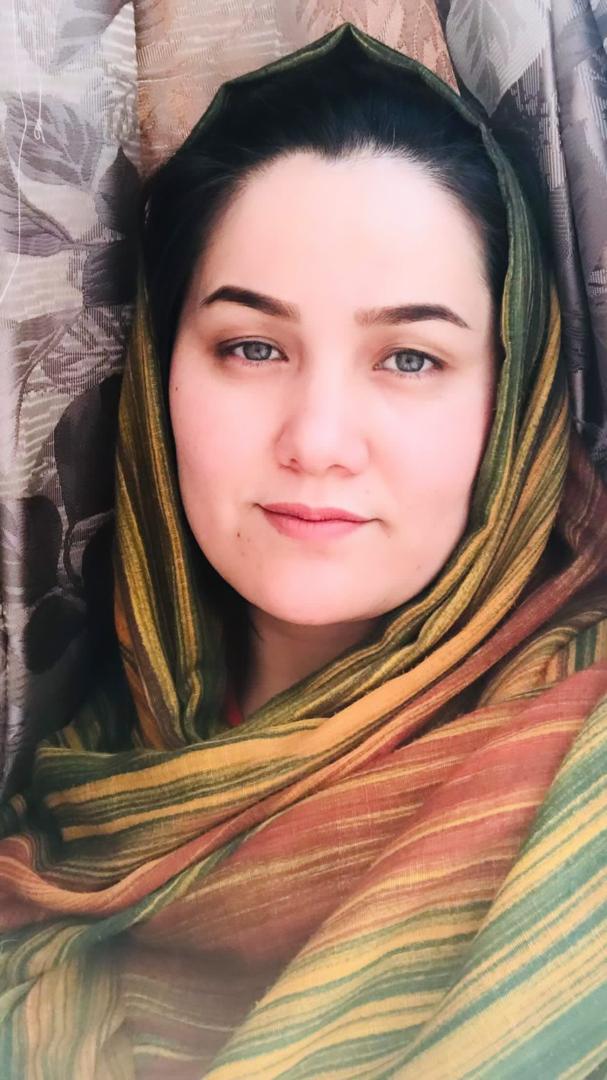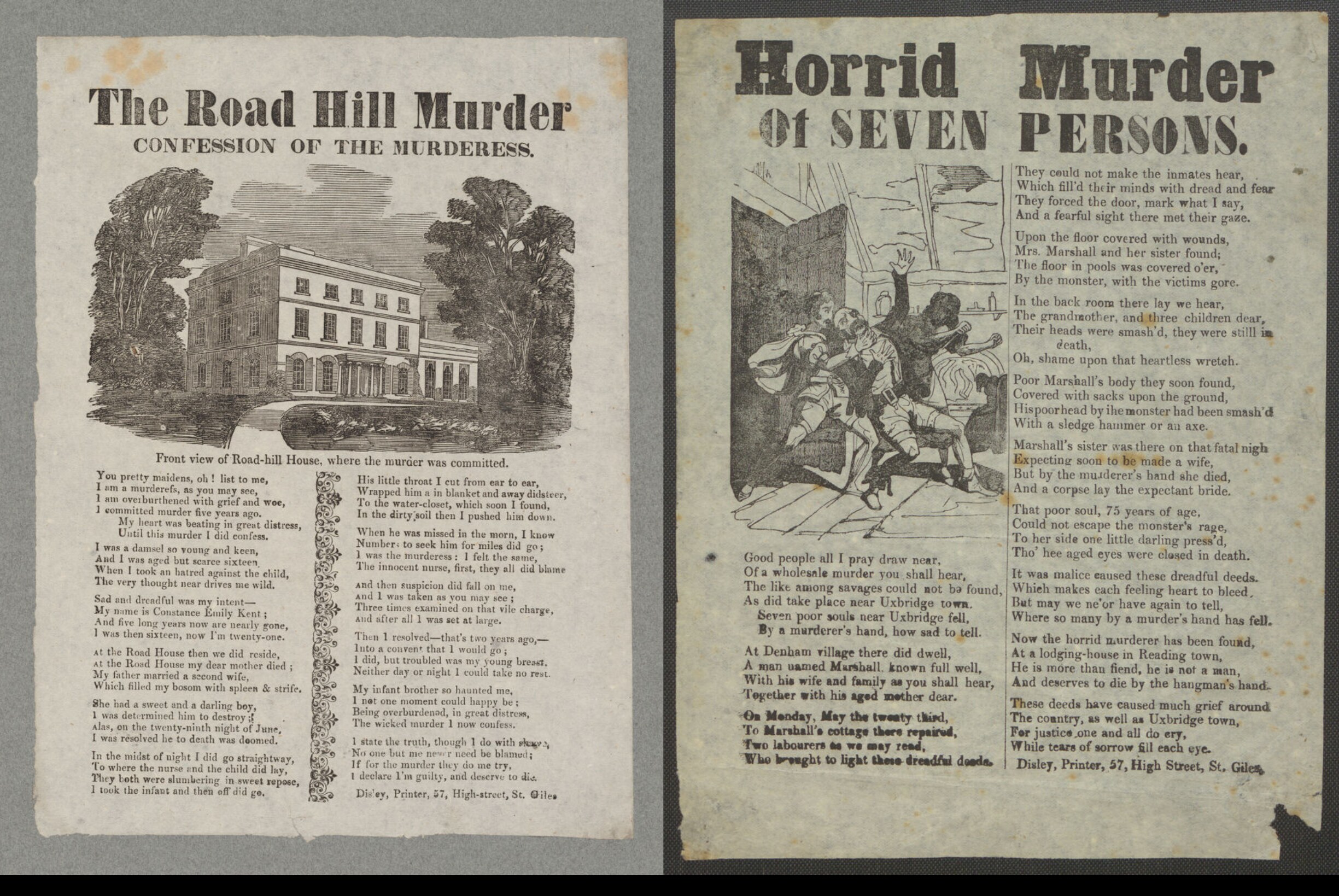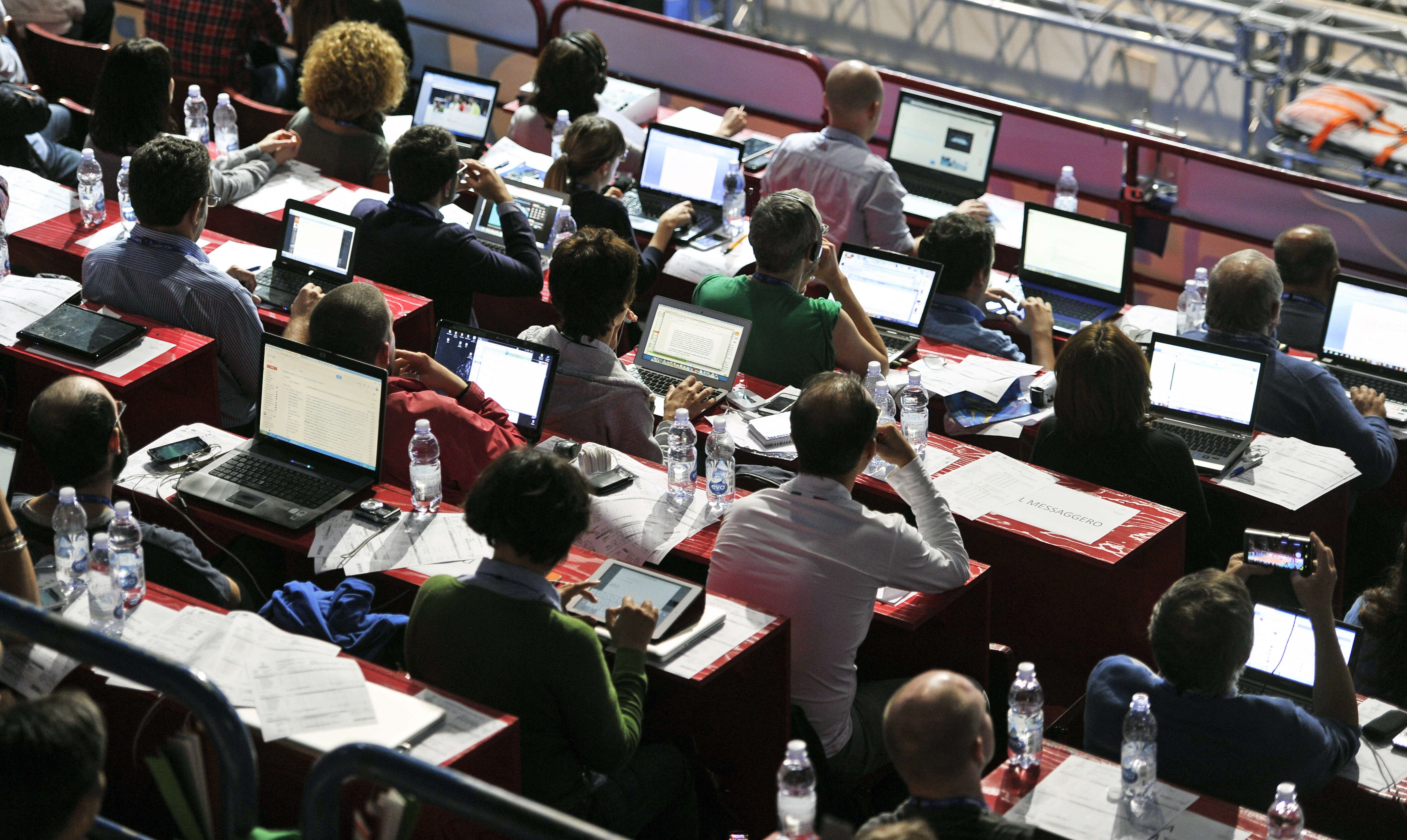بوجهه الضحوك، وشاربه الكثيف، وشغفة بالصحافة، وحيويته الاستقصائية التي لا تنضب، يعتبر بينو مانياتشي أحد أكثر الصحفيين الاستقصائيين الإيطاليين المحبوبين والموثوق بهم في بارتينيكو، البلدة الإيطالية ضمن مقاطعة باليرمو في صقلية. عام 1999 تولى مانياتشي إدارة "تيليجاتو"، وهي محطة تلفزيونية مستقلة. في ذلك الوقت كانت المحطة على وشك الإفلاس والإغلاق قبل أن ينقذها بينو بمساعدة عائلته لتصبح إحدى أهم المحطات التلفزيونية في المنطقة. ساعدته زوجته وأطفاله في إدارة القناة، وسرعان ما أصبح بينو وتقاريره الإخبارية مؤثرة في أجزاء من صقلية.
في وقت قصير، وبفضل تصميمه، فضلاً عن كونه جريئا كسب ثقة الجمهور، وأصبح مرجعاً في منطقة باليرمو والمناطق المجاورة، والرقم الأول في محاربة الفساد وإثارة قضايا "العالم السفلي" وإعادة تثقيف الشعب سياسياً وقانونياً ليكونوا هم السلاح الأقوى ضد النظام الفاسد.
غالباً ما كان أسلوبه المباشر في كتابة التقارير الإخبارية مثيراً للانقسام ولكنه جذب الكثير من الاهتمام، خاصة في تقاريره الجريئة عن المافيا وعمله الصحفي النشيط للقضاء على مافيا "كوزا نوسترا" في صقلية. يقضي بينو حالياً عقوبة في السجن، ولكنه لم يترك القتال أبداً. نظراً لأن تقاريره كانت دائماً تتعلق بالمافيا، فقد حاولوا كثيراً ابتزازه وإيذاءه بل وصلوا درجة تهديده بالقتل. في 22 أبريل/ نيسان 2016، اتهم بابتزاز رئيسا بلديتين في إيطاليا، وإلى جانب هذا، وجهت إليه تهم أخرى بما في ذلك التشهير. وبعد خمس سنوات من هذا التاريخ، برئ من تهمة الابتزاز، لكنه أدين بتهمتي التشهير وحُكم عليه بالسجن 17 شهراً.
تغطي "تيليجاتو" منطقة ذات معدل مرتفع من الجرائم المتعلقة بالمافيا، وغالباً ما تكون هذه الأعمال منظمة وعميقة. لهذا السبب، كانت تقارير بينو مباشرة، مخاطبة الرؤساء الفاسدين والضالعين بالجريمة مباشرة. حتى إن رأس منظمة "كوزا نوسترا" يعتبر من بين أكثر مستمعيه إخلاصاً. مع ذلك، لم يقتصر عمل بينو بالتحقيق في نشاط هذه "العصابة"، بل وسع مجال تحقيقاته لتشمل القضاء.
في العام 2013 على وجه الخصوص ركز على عمل القاضية سيلڤانا ساجوتو، المستبعدة من السلطة القضائية. كشف بينو أنه ثمة دائرة سحرية تربط المافيا بالقضاء من خلال روابط عائلية أو أصدقاء أو علاقات مهنية أو محاباة متبادلة. تمت إدانة الكثيرين من وراء تحقيقات بينو الذي قال إن ما كشفه هو "ميثاق فساد دائم، تسبب في ضرر هائل للخزانة والإدارات القضائية وأنه كان إهانة جسيمة لإدارة العدالة".
السلسلة الوثائقية "الثأر: الحقيقة، الأكاذيب والمافيا"، التي تعرض على منصة نتفلكس، تحكي لنا قصة بينو وشغفه الصحفي ومحاربته للمافيا من خلال العمل الاستقصائي. ست حلقات بعناوين مختلفة ("إعلان الحرب"، "الموت بالڤيديو"، "الفساد، لعنة صقلية"، "الأفخاخ والمؤامرات"، "الحقيقة والكذب"، "الحساب") تلخص تماماً محتوى السلسلة. في قلب هذه الحلقات هناك شخص كرس حياته لمحاربة الفساد، حيث تتابع السلسلة القصة بدءًا من عام 2013، حيث جمع مخرجو الحلقات الست كمية كبيرة من لقطات الأرشيف والمقابلات والتقارير الصحفية الاستقصائية، وتركوا أيضاً مساحة كبيرة للأبطال للتكلم بحرية أمام الكاميرا: ندخل بيوتهم، نعيش داخل محطة "تيليجاتو" والعاملين فيها، نلتقي بأطفالهم، وأزواجهم، وزوجاتهن، وأصدقائهم وننتقل من حقيقة إلى أخرى داخل قاعات المحاكم في صقلية. نرافق بينو يوماً بعد يوم في وقت لا أحد يعرف فيه ما الذي سوف يحدث في اليوم أو الشهر أو السنة التالية. كمتفرجين نكتشف كل شيء معاً ونحن منغمسين في قصة مليئة بالتقلبات والغموض والجوانب المظلمة.
أكثر ما يميز "الثأر: الحقيقة، الأكاذيب والمافيا" هو فضح الصحفي لقانون "نظام مكافحة المافيا" الذي هو بعيد كل البعد عن الكمال. نظام مليء بالفجوات على المستوى التنظيمي. بالإضافة إلى ذلك، نراه في قلب حرب جديدة ليس مع المافيا أو القضاء أو السياسيين الفاسدين بل هذه المرة مع وسائل الإعلام التي تلطخ سمعته، وتصوب اتهامات له بسبب عمله. الكاميرا التي كانت سبب شهرته وسلاحه بوجه المنظومة أصبحت الآن موجهة ضده. "من يتحكم بأجهزة التحكم؟" يواجه بينو الكاميرا بهذا السؤال الذي حدد سردية الوثائقي بكامله، بحيث إن هذه العلاقة يمكن أن تكون سلبية أو إيجابية. لأن الإعلام الذي يستخدمه بينو لمحاربة المافيا هو نفسه الذي يستخدم ضده، وتساءل عما إذا كان أولئك الصحفيون اللذين يجدون أنفسهم مضطرين لإدارة أصول المافيا ــ التي جزء منها هو في وسائل الإعلام ــ، أصبحوا من المافيا أيضا.

يكشف الصحفي بوضوح كيف حولت عائلات المافيا نفسها إلى شخصيات محترمة في مجتمع المال والسلطة، ويكشف، كذلك، كيف تتم حماية عصابات المافيا من قبل السياسيين الذين يرفضون تغيير القوانين للمساعدة في مكافحة الجريمة المنظمة. الحرب على المافيا معقدة بشكل متزايد، الغموص يتعمق والشكوك باقية رغم الإدانات. يوضح بينو أن كفاح الصحافة ضد ظاهرة المافيا من الصعب التمييز فيها بين الخير والشر، بافتراض أنه لا يزال هناك أناس طيبون. هذه هي المعضلة التي يدور حولها الوثائقي. نواجه قصة تجري أحداثها كلها في ضوء خافت. بدأ الصحفي والقاضية عملهما في محاربة المافيا، فقط لينتهي بهما الأمر بالصدام، متهمين بالجرائم التي كانا يواجهانها. عام 2016 وجهت لبينو تهمة التشهير من خلال عرض خدماته التلفزيونية مقابل المال، وفي نفس العام تم التحقيق مع ساجوتو بتهمة الفساد وإساءة استخدام المنصب والاختلاس. كلاهما يعتقد أنه بريء، ويرى أن الآخر مذنب، وكلاهما يعلنان أنهما ضحيتان للانتقام. لا يحدد الوثائقي إذا كان بينو مذنبا أو بريئا، على الرغم من أنه يقبع اليوم في السجن.
أعطى الوثائقي شرعية لمهنة الصحافة الاستقصائية ولكن في نفس الوقت يحذر الصحفيين منها لأنها سيف ذو حدين. الصحافة الاستقصائية تتعلق بمحاسبة الأقوياء وفضح كيفية انتهاك القوانين، صحافة المراقبة التي تحافظ على الحقيقة مع التحذير من الجشع الذي يدفع الصحفيين للتستر على بعض القضايا. على الصحفيين الذين يحاربون شبكات إجرام كبيرة وعميقة أن يكونوا حذرين في كل خطوة، لأن كل ثانية من عملهم محسوبة عليهم ويمكن أن يجدوا أنفسهم مذنبين بشيء لا علم لهم به، تماما كما حصل لبينو.
.













































